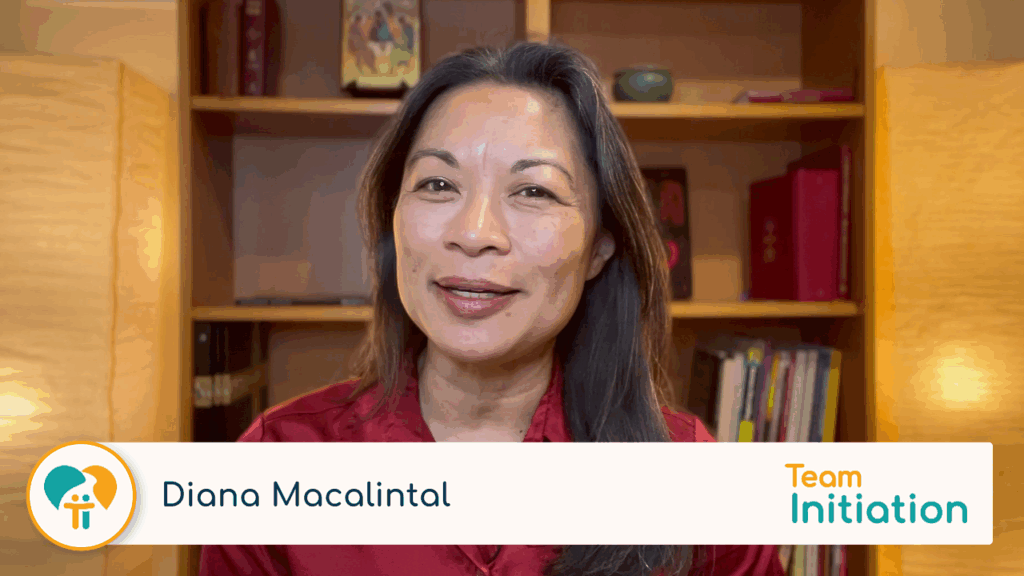![pink abstract colorful by cherie [photoexpress] pink abstract colorful by cherie [photoexpress]](https://teaminitiation.com/wp-content/uploads/2011/05/pink-abstract-colorful-by-cherie-photoexpress.jpg)
In a previous post, I said that reevangelization might be easier for us than evangelization because when we are evangelizing, we have to spend more time and energy talking about why we believe in Jesus as opposed to what we believe about Jesus. We have to say more about how Jesus answers our deepest longings and less about the church’s doctrinal teaching about who Jesus is.
What is your deepest longing?
Fr. Tony Krisak has written a very helpful article on this subject. He points out that all humans have longings. Quoting Ronald Rolheiser, he says humans long for:
- love
- communion
- community
- friendship
- family
- affection
- wholeness
- consummation
- creativity
- self-perpetuation
- immortality
- joy
- delight
- humor
- self-transcendence
Krisak says that when we are first asking someone to turn to Christ, we are not asking them to assent to Catholic doctrine. We are asking them to consider that Jesus is the answer to what they are longing for. And we are telling them that the way to find out if Jesus is the answer is to come and see. Come with us to our community, our parish, our families, and see how we live. Experience our lifestyle. Stay with us a while and see. See if you don’t find love or community or joy or whatever it is you are seeking.
Krisak writes:
We begin not by introducing them to religious education classes that explain the tenets of the Creed but rather by helping them to explore the ways that faith responds to our deepest longings and drives.
Reevangelization is always a reminder of what the person already knows (or once knew and has forgotten). Often, postbaptismal reevangelization does rely on effective explanations of the tenets of Catholic teaching.
The power of the gospel and postbaptismal PowerPoints
Reevangelization, similarly, proclaims that same message. But here is the key difference. The message is always postbaptismal. That is, it is always a reminder of what the person already knows (or once knew and has forgotten). Often, postbaptismal reevangelization does rely on effective explanations of the tenets of Catholic teaching. We are usually saying something like, “You already know that Jesus is the answer to your longing for love. Here is what the church teaches about the way in which the fullness of that love is expressed.” Once we are on that steady ground, we can create syllabuses, handouts, class schedules, and PowerPoint slides that will convey the synthesis of church teaching in ways the returning person may not have been fully aware of before.
Two reasons evangelization is hard
True evangelization is more difficult for two reasons. First, the person who is seeking the “answer” to where he or she can find love or community or joy or whatever is not in church. He or she is not calling us on the phone or e-mailing us. He or she is seeking answers out there in the world somewhere. He or she has probably already found a “false” answer and just doesn’t know yet that it is false. We are never going to find these people by running good RCIA teams. They are out there. They are not in here.
The second reason true evangelization is more difficult is that when we do come across a seeker, we don’t have a practiced way of responding to their longing. What we are practiced at is explaining the tenants of our faith. We are not always so good at explaining how our faith answers our own, similar longings.
How do you do it?
In a future post, we will look at some practical ways RCIA teams can shift into a way of operating that is more focused on initial evangelization. I’d also like to know what you think. Is evangelization easy or difficult for you? Do you have suggestions to share about how we can become more effective evangelists?


















I would like to speak from personal experience here. Although individual seekers may be looking for different things, for me, in 1986, it was the immediate response of hospitality and the sense of being valued as an individual that drew me in. When I inquired (casually, I thought) about “classes to learn about the Catholic Church” because my children, baptized Catholic, were getting old enough for catechesis and I wanted to know what they would be learning, I was not sure how I felt about Jesus or the Church. The immediately loving invitation and the instant acceptance when I walked in for the first inquiry session, had me hooked rather quickly. I almost immediately felt I had come home.
Having experienced that, I believe that providing an immediate atmosphere of welcome and affirmation are very key for many who are tentatively considering the Catholic faith. Information can come later; relationship must come first.
What a great story Joyce! Thanks for sharing.
One of the main problems with people today is their self centeredness, self absorbtion, livng in the world of emotion and feelings. My first reaction to the list of longings was that they can perpetuate self absorption. I would never promise a seeker that Christ will fulfill all they longings. It sounds to much like the prosperity Gospel. i think fulfillment of longings is a byproduct of surrender, a dying to self and being absorbed totally by God. That being said, my initial contact evangelization is more philosophical rather than theological. The longings are an opportunity to redirect, to begin self reflection on purpose. how can we begin to solve problems in someones life if they don’t realize what they are and the purpose for their existence. it’s the age old questions what am i? Who am I? Why am I? Where am I going? In the age of emotions/feelings people have not given these important questions much consideration.